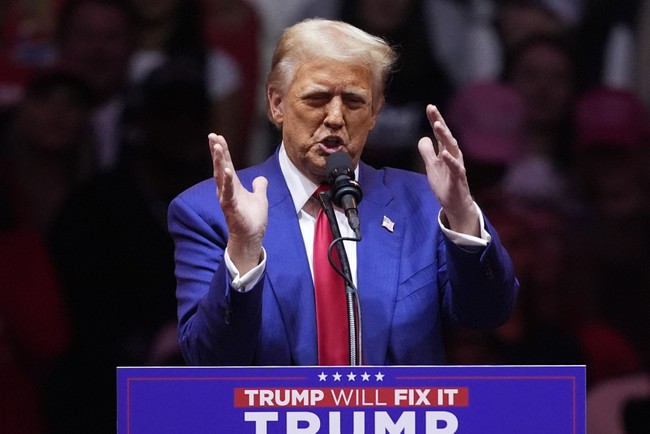Global Reactions to the Trump Assassination Attempt
The recent assassination attempt on Donald Trump has sparked international reactions and concerns about political violence worldwide. Leaders have united in condemnation.
Published July 15, 2024 - 00:07am

Image recovered from washingtonexaminer.com
The recent assassination attempt on former President Donald Trump has sent shockwaves through the global political landscape, leading to a chorus of condemnation from world leaders. This tragic event, which occurred during a rally in Butler, Pennsylvania, saw Trump wounded in the right ear and claimed the life of one attendee.
In the aftermath of the attack, musician Kid Rock, a staunch supporter of Trump, expressed his anger, stating, You f*** with Trump, you f*** with me. He also initiated a GoFundMe campaign that has already raised significant funds to support the victims. Amazon's founder, Jeff Bezos, extended his condolences and praised Trump's courage during the ordeal.
From Israel, Prime Minister Benjamin Netanyahu described the attempt on Trump's life as an attack on democracy itself. Echoing this sentiment, Ukrainian President Volodymyr Zelensky labeled the act as unacceptable and extended his wishes for Trump's swift recovery. These affirmations of support come amid a broader concern over the rising tide of political violence globally.
President Joe Biden condemned the attack, calling it a sick act of political violence. Florida Governor Ron DeSantis also criticized the federal response, demanding an investigation into how the security breach could have occurred. DeSantis's remarks highlight ongoing concerns about governmental accountability and security measures.
International voices joined in the condemnation. Canada's Prime Minister Justin Trudeau declared that political violence is never acceptable and expressed his relief over Trump's survival. Similarly, the United Nations' Secretary-General, Antonio Guterres, spoke out against the incident, calling it an act of political violence that must be universally condemned.
The United Kingdom's Prime Minister, Keir Starmer, stated his appallment and emphasized that political violence has no place in democratic societies. This was mirrored by Australia's Prime Minister, Anthony Albanese, who found the act both concerning and confronting. Japanese Prime Minister Fumio Kishida stressed the importance of standing firm against any form of violence threatening democracy.
The gravity of this event was underscored by reactions from leaders who have had contentious relationships with Trump. Venezuelan President Nicolas Maduro, despite previous animosities, shared his repudiation of the attack, highlighting the shared human and democratic values that transcend political differences.
Other notable reactions included from French President Emmanuel Macron, who emphasized the need to restore dignity to political debates worldwide. Italian Prime Minister Giorgia Meloni called for a collective effort to uphold democracy against hatred and violence. Hungarian Prime Minister Viktor Orban expressed his prayers for Trump, reflecting a wide spectrum of international support.
The attempted assassination has also stirred the domestic political pot. Senator JD Vance irresponsibly contributed to the divisive rhetoric by framing the attack within the narrative of Biden's campaign against Trump. These acts of violence and subsequent reactions are seen as pivotal moments that may shape the upcoming 2024 US presidential election, raising the stakes and intensifying the dangers inherent in an already fraught political climate.
The historical weight of this incident is immense, drawing comparisons to past periods of American unrest, such as the 1960s, which witnessed the assassinations of key political figures. The discussion about political violence is not new, but the recent events have brought it to the forefront of international discourse.
The reality is stark: with 43% of US legislators facing threats of violence, there's a growing sense that democratic processes are under siege. Polls reflect a disturbing belief among citizens about the potential for civil conflict and the inadequacy of elections to resolve fundamental issues. This reflects a broader disillusionment with democratic institutions and the rising fear of recurrent violence.
The attack on Trump necessitated a temporary halt in President Biden's campaign advertising, a gesture reflecting the severity of the situation. However, Trump's scheduled presence at the Republican National Convention signals that the political machinations will continue unabated, with the Butler incident likely to dominate the discourse.
In conclusion, the attempted assassination of Donald Trump has served as a stark reminder of the fragility of democratic processes amidst rising political violence. The incident has not only drawn widespread condemnation but has also spotlighted the need for a unified stand against such unacceptable actions. The global reactions underscore the universal value attached to democratic stability and the rejection of violence as a political tool.

/https://assets.iprofesional.com/assets/jpg/2024/10/586422_landscape.jpg)




